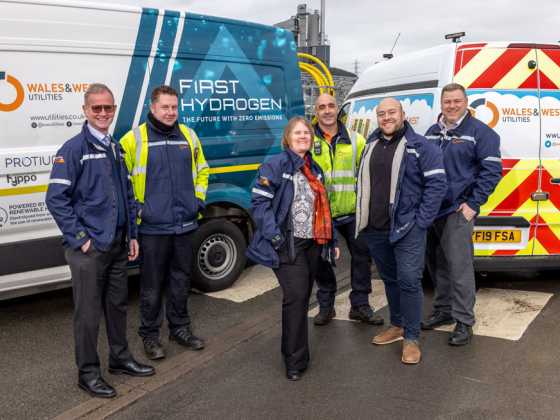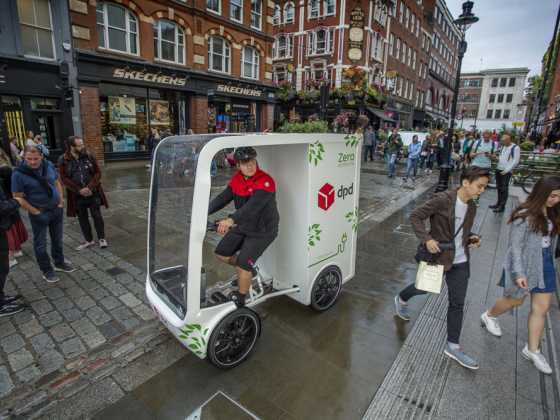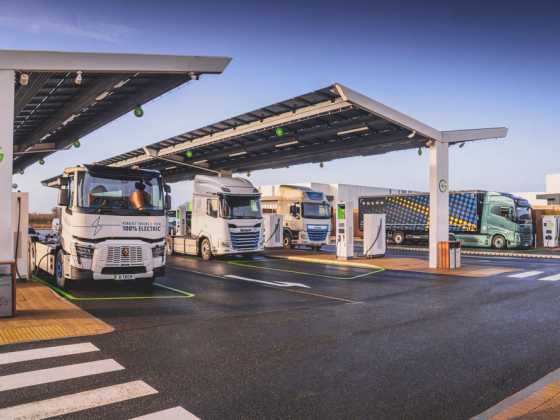Overhauling managed fleets with mobile tech
The Mobile Data Association’s Steve Reynolds explains how mobile technology has become an established and critical tool in managing fleets and ensuring greater, greener efficiencies

This decade has witnessed a significant change in the application of mobile technology to the transport sector. Before this time, the most prevalent use of technology was in vehicle tracking, where solutions were used to assist businesses in making better use of their fleets. It additionally acted as a key security measure. These two benefits alone usually justified the cost of deployment.
What has changed?
There are five main reasons why the transport sector is demanding more from mobile technology partners today: Road Transport working time directive (the law dictating driving break times); employers’ duty of care responsibilities; the rising cost of fuel; increased road congestion; and customers’ increasing demands.
As a result, the transport sector is demanding more creative mobile technology deployments to address this raft of issues.
Mobile applications on smartphones and other portable devices have provided a springboard for innovative development, both in the consumer space and in the enterprise. While it has taken longer for this to percolate into some sectors than others, a whole new range of efficiency benefits are now being realised across diverse industries.
Thanks to robust new devices with more sophisticated features – such as image capture, NFC and barcode reading – as well as considerably-improved capacity for running uniquely tailored software applications, vehicle fleets are being managed better than ever before.
Helping with logistics
British Car Auctions is the largest vehicle remarketing company in Europe and forecast the sale of over 600,000 vehicles in the UK alone in 2011: worth more than three billion pounds. A leading provider of vehicle auctions and remarketing services throughout the UK and Europe, BCA is used by the best known automotive manufacturers and motor vehicle dealer groups, as well as rental, fleet and finance companies.
But BCA does much more than just sell cars. 850,000 vehicles are moved by the BCA Logistics division each year. It collects, inspects, prepares and delivers vehicles to the standards customers expect.
“We needed a mobile solution to grow with our organisation and be flexible enough to cope with the changing business world,” explained BCA director Jonathan Higham. “It was clear we needed a mobile solution because 850,000 vehicles used to require at least 850,000 pieces of paper,” he said. “TBS Enterprise Mobility is a specialist provider of mobile applications for our market sector so it was a very obvious choice.
“PDAs give the ability to capture clear images which illustrate the condition of vehicles. Whereas vehicles used to all be ‘sold as seen’, now, thanks to the technology, we are their eyes.” Images are used to assess vehicle condition and that information is passed through the chain, meaning an online buyer can make an informed decision about whether they want to purchase a vehicle.
The technology role
Mobile technology has become a key part of the wholesale used vehicle market, both as a part of the remarketing process for sellers and as a platform for buyers. Vehicle inspection and appraisal technology is now a key component of data capture that kick-starts
the remarketing process.
New PDAs and software help to provide a high level of consistency, reliability and efficiency – allowing vehicles to be described accurately and swiftly before entering the remarketing arena. By using TBS TaskMaster not only have the quality and consistency of BCA inspections improved, a much quicker overall process is enjoyed.
A mobile solution
Logistical processes around vehicle collections, inspections and delivery are now controlled with the TBS TaskMaster platform, giving greater auditability and helping to ensure workforce standards are consistently upheld by every member of staff.
Integrating tasks into an electronic workflow means vehicle handovers and associated data requirements are quickly recorded, before the information is transmitted to central databases.
Added to this is an Appraisal Engine module, which helps to give BCA extra capacity for automating operations. A vehicle’s condition is determined from the details inspected and subsequently graded. This data allows repair methods and their costs to be instantly calculated, saving time and delivering the required information to the relevant contact as quickly as possible.
Instant benefits
TaskMaster’s integrated image-capture functionality allows appraisers to efficiently inspect vehicles using PDA devices. While image-capture integration visually records new damage, structured picklists enforce the guidelines for consistent and high quality reporting. On completing reports, inspection data is instantly transmitted to central databases.
This has significantly reduced the number of dispute cases when vehicles are returned.
The BCA Logistics division provides vehicle collections and inspections according to industry standards. Fleet managers are provided with a comprehensive understanding of assets’ locations, which better informs live status updates and ETA calculations, giving customers improved response times and more accurate communications.
Auditable inspection processes also means motorists can be charged in a fair and transparent way for end-of-contract damage.
“The PDA device gives us information of where we’re going to collect a vehicle and where we have to deliver it,” said Derek Cartwright, a BCA user of TaskMaster. “We’re able to do the inspection using the device, then the information entered gets immediately sent back to base, and the customer has access to that information through their account.
“It’s made a big difference to working life. For customers, instead of waiting for paperwork to be scanned, processed and put on the system – which can take several days, they now have instant access.”
Efficiency savings help to increase the number of inspections which can be completed in a day, while the rapid transmission of data reduces the time required to populate the BCA e-commerce site with vehicle information. Technology drastically reduces the time taken from collection to sale.
“A key advantage of implementing the TaskMaster system to our business involves the unified inspections platform,” said Jonathan Higham. “This means that information is available to all stakeholders instantaneously, creating huge efficiency savings for our business.”
Cashing in with mobile
G4S (Group4Securicor) is the world leading supplier of security solutions. It implemented a mobile solution for Cash Services crews, boosting service levels and efficiency for the collection and delivery of cash and valuables across the UK.
G4S provides each Cash Services crew with an order of events for the working day directly to their handheld device. This can be downloaded via a docking station or transmitted directly to the driver’s device. Crews scan each cash box onto their vehicle using the barcode scanner within a mobile device, which also commands that the driver’s own ID card must be scanned, providing an audit trail between each cash box, driver and vehicle.
Customers of G4S have been able to enjoy the advantages of more immediate access to delivery and collection status information. Integration of the mobile solution with the G4S central system allows staff and customers to access real-time data.
Going the distance
Implementations of transportation technology have come a long way. The standard industry approach used to revolve exclusively around using vehicle tracking for location and fleet management. Black boxes have actually been synonymous with tracking larger vehicles for the last two decades. Recent years have seen smaller white vans beginning to adopt the facility, using them for compliance, safety and security purposes.
Now the onus is on empowering drivers in every conceivable way, extending the functionality of sophisticated solutions. Today mobile technology is enhancing and augmenting the workflow and management of drivers. As British roads get busier, the fleet and transport sector is increasingly under the spotlight as a growth area for mobile applications. Traffic congestion has led to more sophisticated Satellite Navigation systems, both for consumers and businesses, connected to real-time road information – leading to another potential technology stack which can be built into solutions.
Potential use cases span far and wide, such is the diversity of the sector and the different pockets of specialism. At the Mobile Data Association we support and encourage this development and attention as a good thing for all concerned.
Written by Steve Reynolds, president, the Mobile Data Association
FOR MORE INFORMATION
www.themda.org






